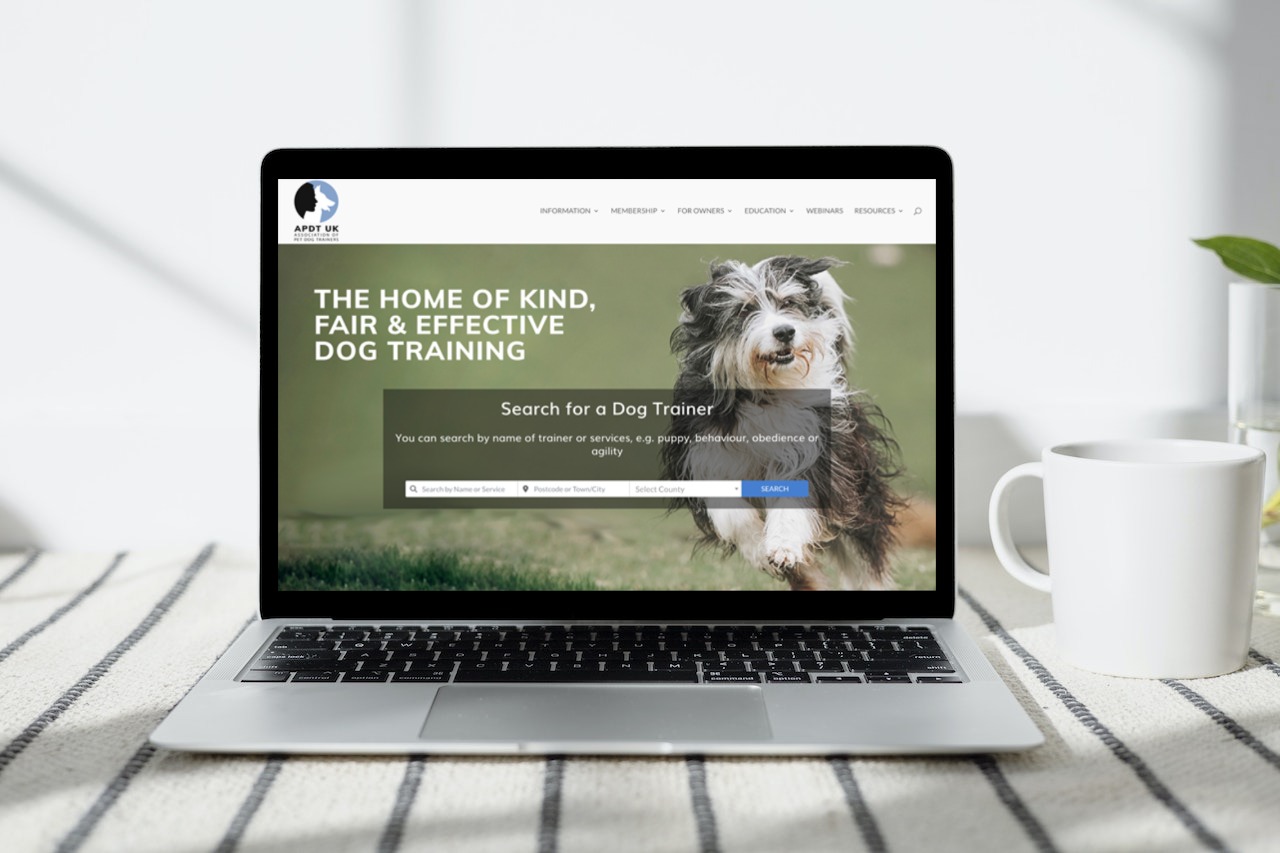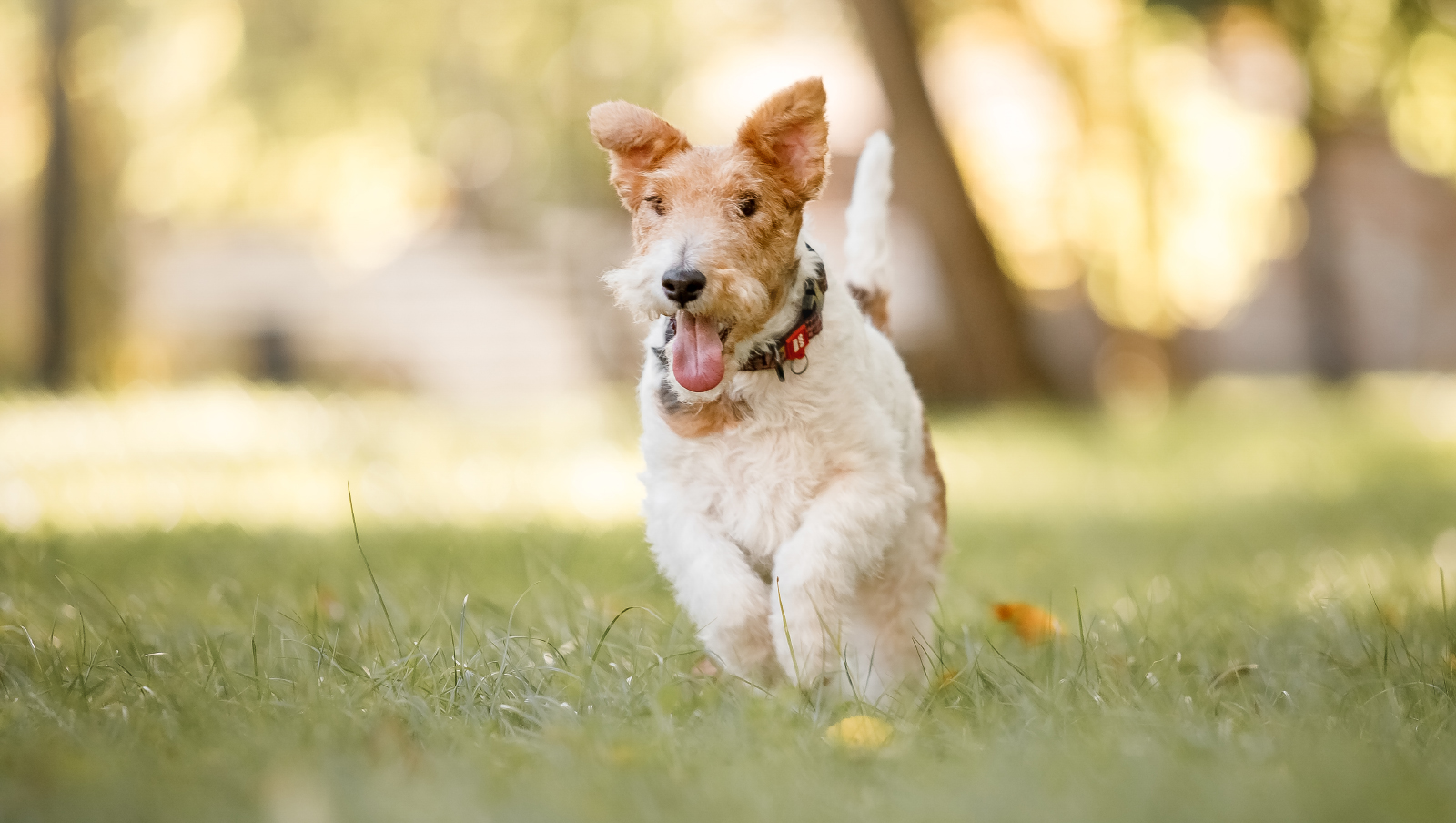As a Director of the UK Dog Behaviour and Training Charter and former chair of the APDT, Jane Robinson is a respected authority in the field of dog training and behaviour. With her extensive experience and knowledge, she provides a valuable perspective into various aspects of dog training, behaviour modification, and the key ethical practices important for keeping our dogs well and happy. We’re excited to have Jane share her insights with us at Yappily, as she kindly answers some of our burning questions!

Could you share your journey in the field of dog training and behaviour, and what inspired you to become a leader in this industry?
My journey started when I took my puppy to a local class where the trainers taught a ‘leave it’ cue by throwing items at the dogs. They also advised throwing saucepan lids down the stairs to stop dogs barking at doorbells.
Having studied psychology, this struck me as morally and ethically wrong and I wanted to explore a kinder way to train my dog – and perhaps other people’s too. I found the APDT after doing some research online and I saw that they ran education courses for those wishing to pursue a career in dog training.
The APDT is the oldest and most established not-for-profit training body in the UK, they only use kind, fair and effective methods which align with my ethics. Everyone I met on the course was so welcoming and kind – and nobody judged me because I had little to no dog training experience.
Once I’d completed the course, I got the training bug and soon realised that I wanted to dive much deeper into increasing my knowledge and understanding which is what led me to study behaviour too.
What were your primary goals and accomplishments during your tenure as the chair of the APDT?
I stepped up as Chair of the APDT in 2020 at the height of the pandemic. All around us, trainers were losing their business’ because of the lockdown, and members needed additional support.
Being part of a team that offered help in teaching trainers how to use Zoom to run classes online and providing safe spaces for members to come together remotely was key to keeping our community together at an extremely challenging time.

We began running webinars for members so that they could continue their CPD and we increased our marketing profile so that the public knew where to find accredited trainers. I’m proud to have redesigned the APDT logo so that the dog and human are facing in the same direction.
Our old logo had them facing each other which was a contradiction given that putting your face near a dog’s face and staring directly at them is very confrontational and potentially dangerous.
How would you describe your philosophy or approach to dog training and behaviour modification?
As a full member of the APDT I have agreed to abide by a strict code of practice and I will only use science and evidence-based methods when working with dogs. Dogs live rich emotional lives and they’re communicating all the time.
Once we start to listen to and observe them, we can meet their needs, and acknowledge and guide them to make great choices using positive, reward-based training methods. If you wouldn’t do it to a child, don’t do it to a dog!
UK Behaviour and Training Charter: As a director of the UK Behaviour and Training Charter, what are its key objectives, and how does it aim to improve the industry?
The APDT was a founding signatory to the Charter. The Charter’s key objectives are to make a clear statement regarding the future direction of the dog behaviour and training industry in relation to professional standards, tools and methodologies.
The welfare of dogs lies at the heart of the Charter’s mandate, making a clear representation as to what is, and what isn’t, acceptable in a modern, progressive, science and evidence-based profession.
Our aim is to help pet owners find the right, suitably accredited trainers for their dogs.
Advice for dog owners: What advice would you give to new dog owners regarding training and establishing a good relationship with their dog?
Regrettably, the dog training and behaviour industry remains unregulated. But even before you look for an accredited trainer, do your homework on the puppy you’re bringing home: Look at what it was bred to do, are you going to be able to meet its needs with regards to mental and physical stimulation? Dogs are highly social animals, they live in social groups and not in isolation.
Please do your research, meet the puppy’s mother, and meet the puppy’s father. Make sure your breeder has done all the relevant health checks.
Before you bring your puppy home, do your research and find an accredited trainer in your area. APDT members have been fully assessed and are expected to undertake at least 15 hours of CPD a year so that we can keep our knowledge and understanding of the science of dog training and behaviour up to date.
Use positive methods with your puppy. Dogs don’t know right from wrong, they don’t have a moral compass and they don’t speak English.
Any dog (just like any other animal – including human animals) will do whatever it needs to do to feel safe and survive. When your dog is offering behaviour that you like, reward it because what we reward and reinforce gets stronger, this is the best way to build a strong and trusting bond between you and your dog.
Challenges in training: What are some of the most challenging aspects of dog training, and how do you address them?
Dog training can present various challenges, and addressing them requires patience, adaptability, along with a deep understanding of canine (and human) behaviour. There’s a lot of conflicting advice around, especially since we all have access to the internet.

Non-scientific approaches to dog training which offer a quick fix and utilise punishment and pain, along with the outdated (and debunked) ideas about dominance, muddy the waters and it breaks my heart when I meet well-meaning owners who’ve been given outdated advice based on showing the dog ‘who’s the boss’ or being ‘pack ‘leader’, yanking their dog’s collar or leaving them to ‘cry it out’.
I’m yet to meet a person who isn’t relieved when they hear that their dog isn’t the enemy who’s plotting to take over their home, but a highly social animal who wants to avoid conflict and live harmoniously within their social group.
Future of Dog Training: How do you see the field of dog training and behaviour evolving in the next few years?
My personal opinion is that I hope there will be some regulation within the field of dog training and behaviour so that the general public feels safe in the knowledge that the person they hire to teach them and their dog has the appropriate accreditation.
Professional development: What advice would you give to professionals aspiring to advance in the dog training and behaviour field?
Advancing in the dog training and behaviour field requires a combination of curiosity, knowledge, experience, and a commitment to ongoing learning.

If you’re not already accredited with a reputable training body then go get accreditation with one of the training/behaviour bodies regulated by the Charter or the ABTC. Being part of a recognised, professional body gives you access to a community of like minded, professional people. Stay up to date on the latest research and developments in the fields of training and behaviour through seminars, workshops and courses along with books and webinars.
Don’t loose your curiosity! Dog training techniques evolve, and staying informed about the latest methods and research is essential for success. Continuously strive to improve your skills, stay informed, and approach your work with empathy and dedication.
Memorable experiences: Can you share one or two of your most memorable experiences or success stories in your career?
I’m very fortunate to have had the pleasure to work with so many interesting people and their dogs that it would be difficult to pick anyone who stands out.
Every situation with every person and every dog is unique and I never stop learning – there’s never a dull day at the office. I do get a huge amount of satisfaction from working with clients whose dogs have Separation Anxiety – and the time, dedication and commitment involved is inspiring. People literally get their lives back when they’re finally able to leave their dogs safely alone.

Expert Training in Action. Jane Robinson and Dog on the Hill in North London
Jane continues her hands-on work with dogs and their owners through her company, Dog on the Hill, based in North London. As an accredited Scent Instructor with UK Sniffer Dogs and a Certified Separation Anxiety Behaviour Consultant, she brings a unique and specialised skill set to her practice.
Dog on the Hill is a valuable asset for the North London dog community, providing customised and effective training solutions for dogs of all breeds and ages.
Check out Dog On The Hill and how Jane can help you.
Keeping it real with expert advice on Yappily
At Yappily, our blog mission is straightforward: to provide great informative content for both Dog Pros and dog guardians. Our collaboration on a feature with experts like Jane Robinson plays a pivitol role in this. We aim to blend professional insights with practical dog care tips, ensuring everyone who cares for a dog has access to the best information.
Stay with us at Yappily for more expert advice, as we continue to navigate our shared journey in ethical dog care.
How to become a member of the APDT




Add a comment